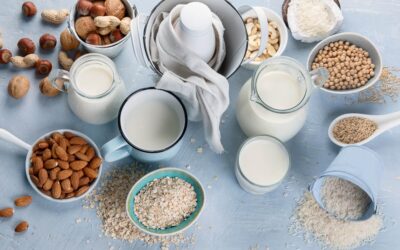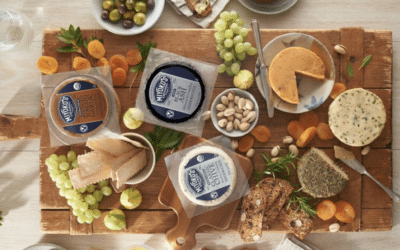A new study partially funded by the National Dairy Council of Ireland has attempted to contribute to the growing body of susceptible evidence that dairy promotes athletic recovery. Similar to pro-dairy research in the past, cows’ milk is given an advantage based on the beverage it is compared to—an “energy matched carbohydrate solution—” also known as sugar water. While headlines may summarize the abstract and conclude that dairy benefits recovery, what the results really translate to is: dairy may not be the worst thing you can put into your body. We analyzed the study methodology and its findings to see how the true results of this study got lost in translation.
Study Design
Titled, Can Milk Affect Recovery from Team Sport-Stimulated Match Play?, the study tested the potential effects of milk on female athletes following high-intensity exercise. Twenty-six soccer players participated; notably, any volunteer who was lactose intolerant was excluded from participating. Due to this intentional exclusion, the results of this study cannot be applied to the 65 percent of the global population who suffer from lactose intolerance. It is crucial to understand that these results—accurate or not—only apply to a minority population.
The participants all completed two rounds of exercise 48 hours apart. They were tested on jump height, lap time, countermovement jump, sprint performance, heart rate, and RPE (rate of perceived exertion). Immediately following each workout, the athletes drank either a half-liter of cows’ milk or a half-liter of a calorically equal carbohydrate-enhanced fluid (again, essentially sugar water).
Lackluster Results
Despite the intentional advantage, researchers found little difference between the sugar water and the cows’ milk groups, and the few improvements within the milk group were labeled as merely “moderate.” The milk group seemed to have a small improvement in peak torque for knee extension and knee flexion as well as the sprint. Other parameters did not show any benefit to the milk group. Further, the researchers admitted that milk performed poorly in regards to reducing oxidative stress and inflammation—even sugar water seemed to be more beneficial in this area.
Moving Forward
For athletes, reducing inflammation is key in order to consistently train at a high intensity. An athlete simply cannot perform at the same level if inflammation is making them achy and sore. While cows’ milk provides a negligent amount of inflammation-fighting antioxidants, plant foods carry an abundance of them and help athletes get back on their feet. To truly determine the optimal post-workout beverage, a comparison between cows’ milk and tart cherry juice—a high-antioxidant beverage—may yield results that are not in milk’s favor.
The greatest takeaway from this study is that we cannot blindly trust the research funded by the dairy industry and promoted amongst the mass media. Cows’ milk—chocolate or otherwise—is not a superior product when it comes to athletic recovery (or overall health, for that matter). For post-workout snacks to truly give you a competitive edge, download the Switch4Good Athlete’s Power Plate. It’s time to stop taking chances on cows’ milk and rely on foods that truly fuel champions.
Photo credit: @ninoirgolic








